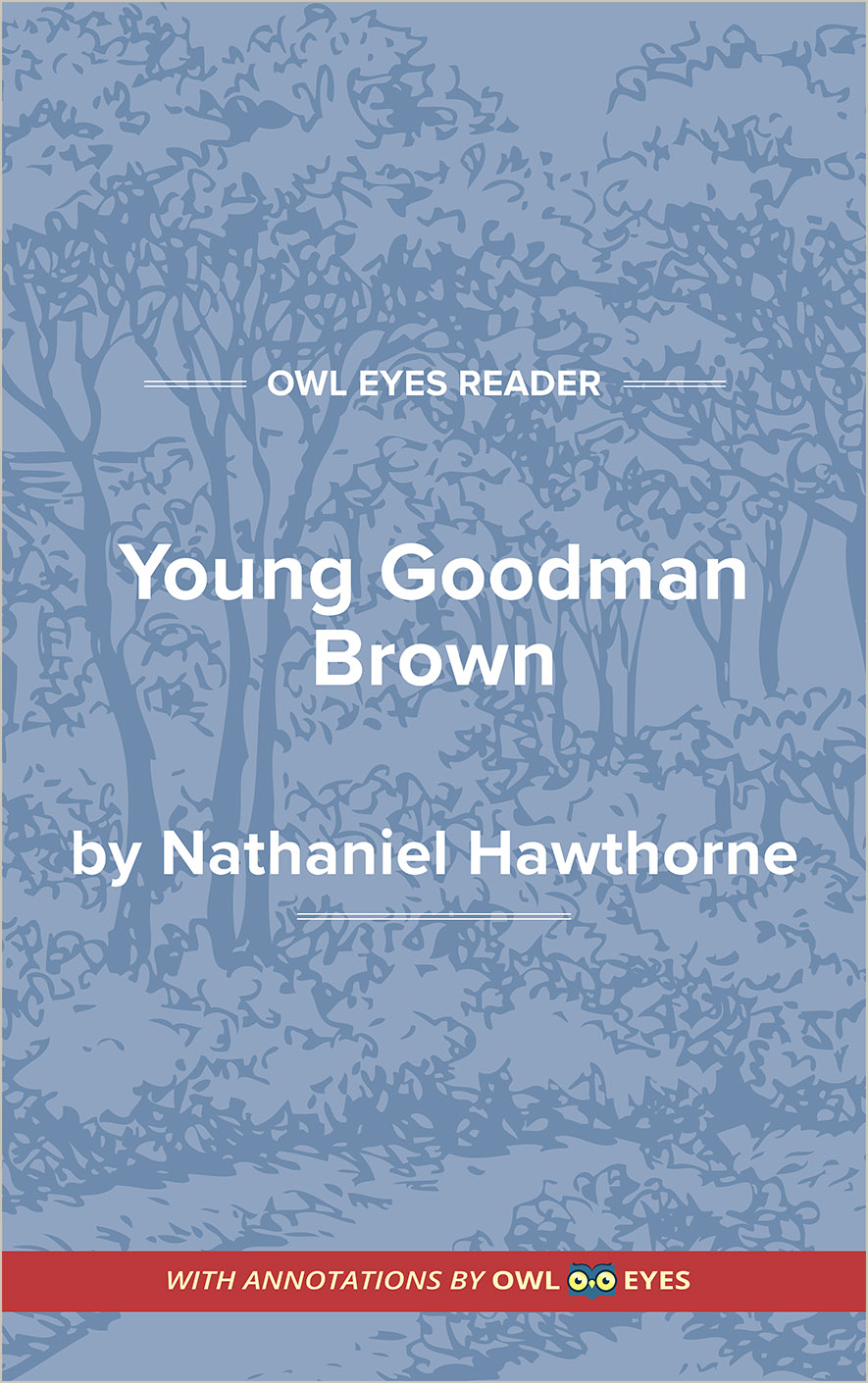Analysis Pages
Character Analysis in Young Goodman Brown
Goodman Brown: Goodman Brown is a pious young Puritan man living in the town of Salem, Massachusetts. For reasons that are unclear, he leaves his new bride one night to journey out into the woods and meet with the devil. Goodman Brown is a vessel for the perspectives and values of New England Puritanism, including the tendency to view morality as a matter of appearance and consensus. Brown’s adventures in the woods will force him to question everything he believes.
Faith Brown: Faith’s role in the story is mostly allegorical. By giving her the name “Faith,” Hawthorne presents her as a symbolic representation of Goodman Brown’s Puritan faith. When Goodman Brown witnesses Faith participating in a disturbing Black Mass in the woods, his beliefs are put to the test more than ever.
The Devil: In the woods Goodman Brown meets a well-dressed, courteous, middle-aged gentleman who resembles himself in appearance. The man bears a staff carved in the form of a black serpent and soon invites Goodman Brown to join him for a stroll. The man, it turns out, is the embodiment of the devil, and takes it upon himself to subject Goodman Brown to a series of insights and revelations that force the young Puritan to turn away from his blind faith.
Goody Cloyse: Goody Cloyse is Goodman Brown’s catechism teacher who appears briefly in the woods. With the help of the devil, Goodman Brown discovers that Goody Cloyse is not actually a devout Christian, but a witch. Her presence in the story demonstrates the corruptibility of even the most pious members of society.
Deacon Gookin and the Minister: These two church officials display religious hypocrisy when Goodman Brown witnesses them joining the townspeople in the woods for the Black Mass.
Character Analysis Examples in Young Goodman Brown:
Young Goodman Brown
🔒"Had Goodman Brown fallen asleep in the forest and only dreamed a wild dream of a witch-meeting?..." See in text (Young Goodman Brown)
"But Goodman Brown looked sternly and sadly into her face, and passed on without a greeting...." See in text (Young Goodman Brown)
"“Faith! Faith!” cried the husband; “look up to heaven, and resist the wicked one.”..." See in text (Young Goodman Brown)
"Come witch, come wizard, come Indian powwow, come devil himself, and here comes Goodman Brown. You may as well fear him as he fear you...." See in text (Young Goodman Brown)
"Amidst these pleasant and praiseworthy meditations, Goodman Brown heard the tramp of horses along the road, and deemed it advisable to conceal himself..." See in text (Young Goodman Brown)
"What if a wretched old woman do choose to go to the devil when I thought she was going to heaven: is that any reason why I should quit my dear Faith and go after her?..." See in text (Young Goodman Brown)
"Being a stranger to you, she might ask whom I was consorting with and whither I was going...." See in text (Young Goodman Brown)
"We are a people of prayer, and good works to boot, and abide no such wickedness.”..." See in text (Young Goodman Brown)
"I have been as well acquainted with your family as with ever a one among the Puritans;..." See in text (Young Goodman Brown)
"But the only thing about him that could be fixed upon as remarkable was his staff..." See in text (Young Goodman Brown)
"But no, no; 'twould kill her to think it. Well, she's a blessed angel on earth;..." See in text (Young Goodman Brown)
"Methought as she spoke there was trouble in her face, as if a dream had warned her what work is to be done tonight. ..." See in text (Young Goodman Brown)
"A lone woman is troubled with such dreams and such thoughts that she's afeard of herself sometimes...." See in text (Young Goodman Brown)
"“Poor little Faith!”..." See in text (Young Goodman Brown)

